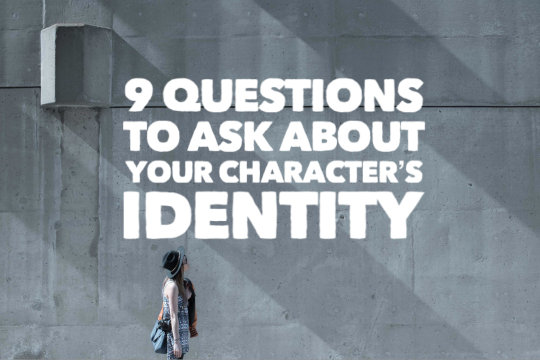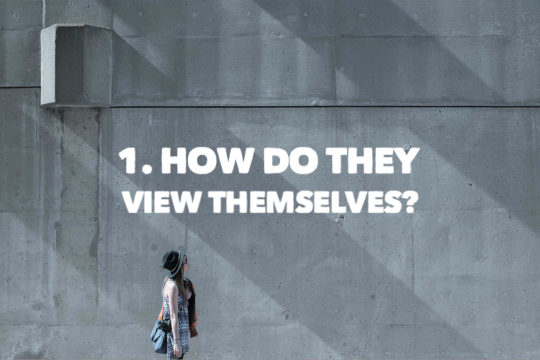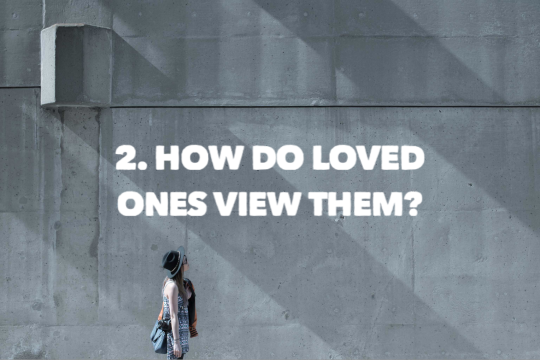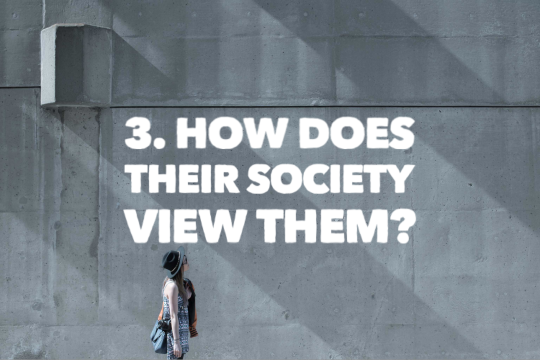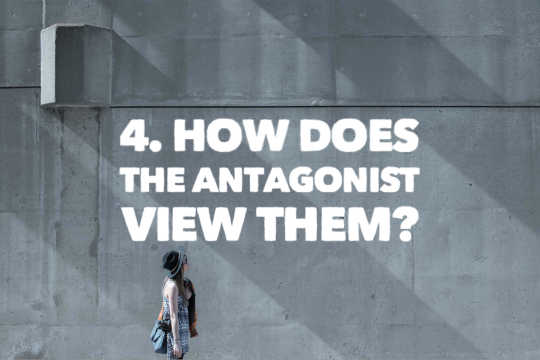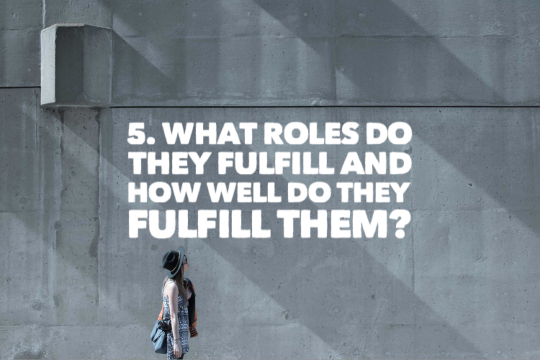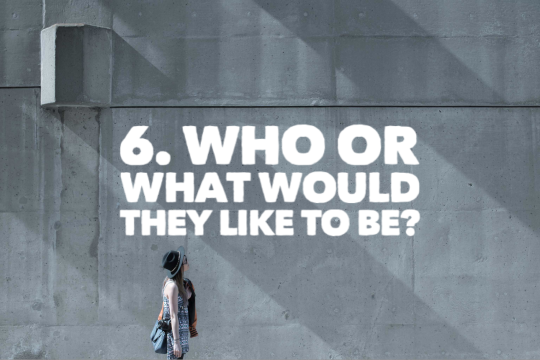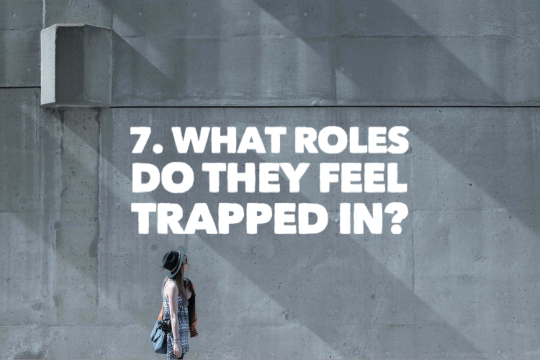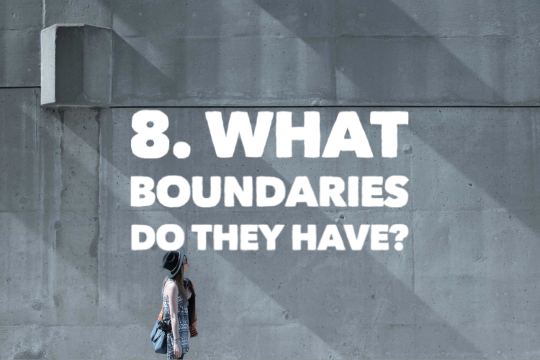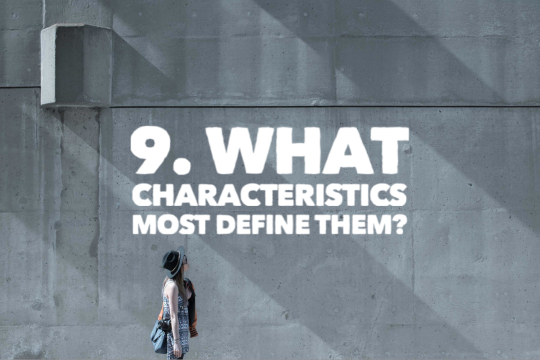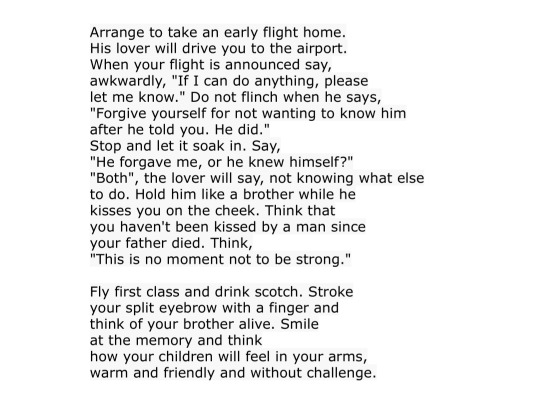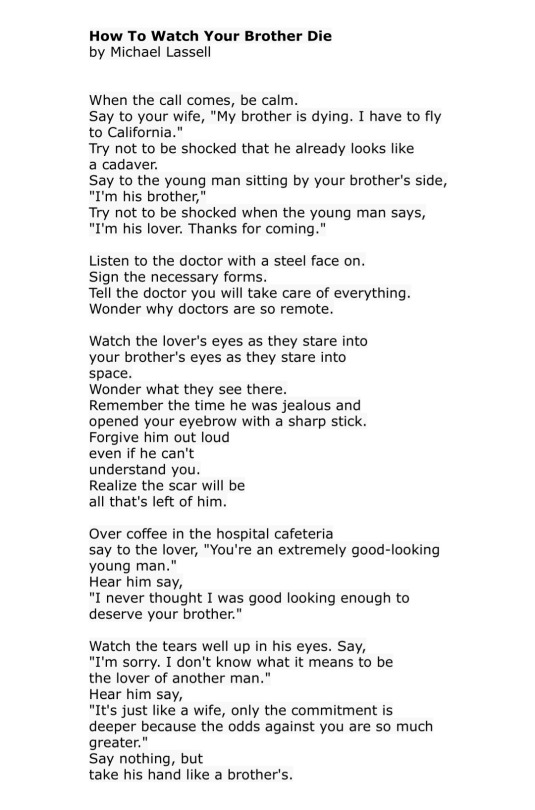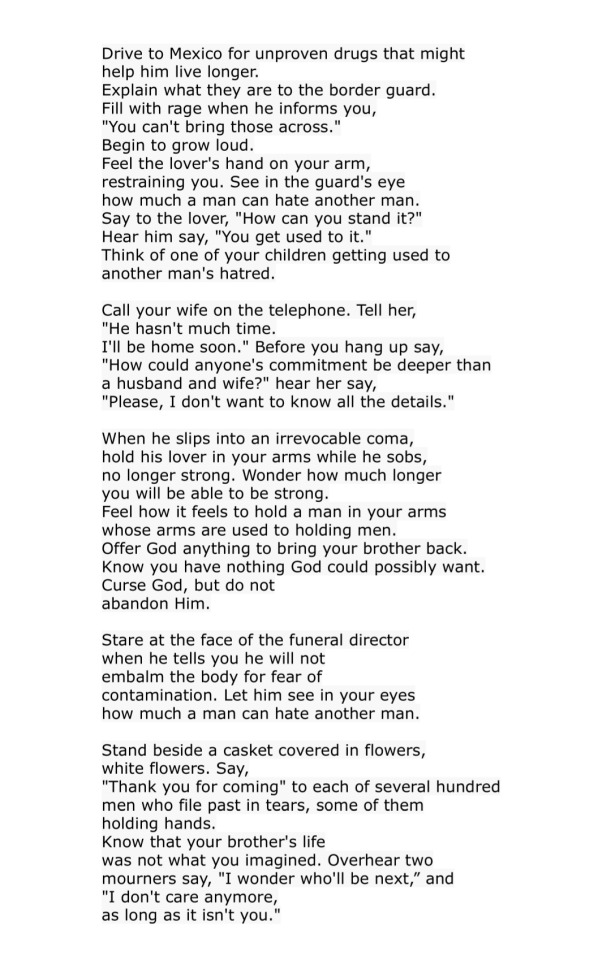Text
If you are trying to transform a brutalised society into one where people can live in dignity and hope, you begin with the empowering of the most powerless. You build from the ground up.
Adrienne Rich
29 notes
·
View notes
Text
Romantic Gestures for Characters
❥ The “I Know You” Gesture
Your character remembers something tiny. Maybe their partner always peels oranges but hates the stringy bits. So they do it for them, meticulously. No grand speech. Just peeled oranges on a napkin, handed over like, I got you. It’s not flowers. It’s better.
❥ The “You Matter More Than My Ego” Move
Apologies. Vulnerable, awkward, ugly ones. Not performative, not flowers-as-a-bandage. Just a raw, honest “I screwed up. And you didn’t deserve that.” That’s romance with guts.
❥ The “I Made This With My Clumsy, Lovesick Hands” Attempt
It’s not a five-star meal. It might be an overcooked mess. But they tried. They Googled recipes, burnt a pan, and still showed up with a crooked smile and a smoke-scented apology. Intimacy lives in the effort, not the execution.
❥ The “I’m Thinking of You Even When You’re Not Around” Habit
A voice memo left in the middle of the day. A text that says, “I saw this book and thought of you.” A saved pastry because “you love those stupid lemon ones.” It’s in the thought, the noticing. The I-carry-you-with-me-even-here of it.
❥ The “You’re Safe With Me” Moment
Middle of a panic attack. They don’t run, they don’t fix. They sit. Hold a hand. Count breaths. They become a lighthouse in the fog. That’s not just romance, it’s sanctuary.
❥ The “Make You Laugh When You Want to Cry” Trick
Silly voices. Bad dad jokes. A spontaneous dance in the kitchen just to make them smile. Love doesn’t always whisper—it cackles, snorts, belly-laughs until you can’t remember what the fight was about.
❥ The “I See the You Nobody Else Gets to See” Love
Noticing the nervous tic they try to hide. The quiet resilience. The softness behind the sarcasm. Your character sees it all and chooses to love them there. Not despite their mess, but because of it.
❥ The “I’ll Go to the Boring Thing Because You Care” Sacrifice
They hate art galleries. Or jazz. Or your character’s weird book club full of PhD students. But they show up. They try. They listen and maybe even ask a thoughtful question. Not because they suddenly love postmodern fiction, but because they love you.
❥ The “Let Me Take Care of You, Just This Once” Flip
Especially powerful when it comes from your fiercely independent character. When they finally let someone in. Accept help. Rest their head on a lap and let themselves be held. Or be the one doing the holding for someone who never asks.
❥ The “I Want to Remember This” Gesture
No, not just a scrapbook. Maybe it's saving movie stubs, or voice recording a partner’s laugh because it's perfect and might not last. Maybe it's writing a poem they'll never read. Romance often lives in what we keep sacred, quietly.
❥ Bonus — The Non-Obvious Public Gesture
Holding hands in public when your character usually doesn’t. Or kissing their partner’s temple in front of their disapproving parents. Or calling them “baby” when it makes their partner smile like a fool. Public affection isn’t about performance, it’s about pride. Claiming someone. Softly, fiercely.
3K notes
·
View notes
Text
How Body Language Changes When a Character Is Falling in Love (Whether They Admit It or Not)
When someone starts to fall, it shows up everywhere—not in the love confession (that’s the easy part), but in the twitch of a smile, in the silence that suddenly feels charged, in the way someone’s hand almost reaches out before pulling back.
╰ They start listening… with their whole damn body
Suddenly, they’re turned toward this person all the time. Full body facing them. Chin tilted slightly in. They lean forward during small talk like it’s breaking news. They notice things, like the rhythm of their voice, the way their lips move when they think too hard. They stop fiddling with their phone. Their knee bounces until the other person speaks, and then, stillness. They’re so present, it hurts.
╰ Their eye contact gets… weird
Sometimes they can’t stop looking. Sometimes they can’t look at all... There’s that moment—the pause, the flicker—where their eyes land on the other person’s mouth for just a second too long. Or they track their hands. Or notice how their hair falls into their face. It’s not about lust. It’s yearning, and it’s quiet and stupid and full of panic. And when the person catches them looking? Immediate eye dart. Back to their drink. To the sky. To anywhere else. Guilty. Flushed. Terrified.
╰ Their hands get stupid
They’re suddenly very aware of what their hands are doing. They fidget more. Or freeze. They keep their arms close to their body, like they’re worried they’ll accidentally reach out. If they touch the other person, even casually, it lingers. Not long enough to be noticed, but long enough to matter. Sometimes they adjust the other person’s collar or brush something off their sleeve and then have a tiny meltdown inside. That kind of touch feels too intimate. It’s not flirtation. It’s reverence.
╰ Their silence means more than their words
They trail off mid-sentence. Laugh at things they don’t usually laugh at. Start saying something and stop themselves. It’s because their brain is trying to do too many things at once—act normal, sound chill, don’t make it weird, try not to look like you’re in love. Meanwhile, the body is over here sweating, shifting, subtly turning toward the other person like a sunflower in denial.
╰ Their whole vibe gets softer
There’s a gentleness that creeps in. Even if they’re a sharp, snarky character, there’s a moment where they look at the person like they’re a planet they’ve just discovered. It’s brief. It’s devastating. It’s involuntary. And they might pretend it didn’t happen. But the reader saw it. The love interest definitely saw it. And suddenly, everything is different.
╰ Bonus: They mirror the other person without meaning to
Their arms cross when the other person’s do. Their head tilts. They laugh a beat after. This is subconscious connection at work. Their body wants to match this person. Sync with them. Be close without being obvious. And when they stop mirroring? That’s a sign too. Maybe something hurt. Maybe they’re trying to pull away. But the body always tells the truth, even when the character’s mouth is lying through its teeth.
4K notes
·
View notes
Text
Writing is half the battle for fiction authors.
Imagine yourself reaching the pinnacle of writing excellence. Imagine your every word an art form, studied for centuries onward. Is that enough?
I think not.
For fiction writers at least, I believe there’s another piece of the pie as important to great writing: storytelling.
Was that a shock because it was too obvious?
Well, of course, knowing the art of storytelling is important in telling a story. But you’d be surprised at how many writers are consumed with writing while disregarding the other as if it means nothing. But they’re not the worst culprits.
Those I feel most pity for think books, schooling, and courses, the only way to learn storytelling. And under that assumption, they take a course or join a long BootCamp. Then they think they’ve learned something important. And maybe they did learn something useful, about character or plotting, but not enough, compared to the jewel they’ve sacrificed.
Someone can teach you how to hold a pen. Another, how to write letters and beautiful sentences. But no one can teach you how to tell a story.
The most they can give you is direction. Why?
Because to tell is to dig deep within. It’s to have a conversation with our innermost self, in hopes of finding something startling and ugly, or beautiful beyond description.
You then take that substance, that untouched diamond, and turn it again and again. And with every spin, a bit of the grease and dust comes off. And it begins to shine brighter.
Your characters come out relatable and true because they carry part of yourself in them. Your plot has merit because it’s the butchered version of your lived reality.
Then there’s the setting, theme, and all the other aspects presented in a story. They all have a common denominator that makes them feel alive: they come from within you.
Now tell me, can someone else venture into your darkest thoughts and bring the dirty diamond out for you? I think not.
So first, acknowledge the importance of storytelling.
Second, devote yourself to becoming a student of the art, never a master.
Third, know that there’s always something to find deep within yourself, and that only you can fish it out.
Until next time.
23 notes
·
View notes
Text
“Silence is the best answer to someone who doesn’t value your words.”
— Unknown
2K notes
·
View notes
Text
I wanna talk about narrative styles let's talk about narrative styles for a bit.
Each of my wips has a distinctly different narrative style, and I love that so much.
Let's start with the most surface level thing: point of view
What's Your Story and Nearly Parallel Lives are both first person with different narrators on different chapters. I became obsessed with this kind of narration after reading some Rick Riordan books and for awhile that was how I was writing all my books. Until I realized it was really fucking annoying. The stuff I was writing at the time just really wasn't made for that kind of narration, so I ended up scrapping it, but I didn’t want to completely stop using it, so I found new projects that it actually worked for. This is actually part of what prompted WYS and NPL, I just really wanted to write like that lol. Anyways, switching perspectives is fantastic for showing different characters mindsets and personalities, as well as events that might be happening at the same time in different places, but it can get chaotic and confusing easily, so you have to be careful with it or you'll get tangled up in your own narration.
Appearances Are Deceiving, Survival Is A Team Sport, and Like A Movie are all first person with only the one perspective. This one is probably the one I'm the most familiar and comfortable with. It has the benefits of the switching perspectives one without its drawbacks, and it has the benefit of making it easier to have an unreliable narrator and use them to hide things from the readers. One drawback is that your narrator has to be either present for or somehow hear about everything important that you want your readers to know about. You can’t just switch to someone who was there like in the first method or zoom the camera out like you can with third person. This can mean some hard decisions on what to include in your story, because it's unrealistic for one character to know about everything going on in your story and world (unless they're an omniscient godlike being, in which case you might be able to pull it off).
And finally We All Lie Amongst The Thorns, The Enchanted Forests, and Twisted Inspirations. These three are all in third person, though in slightly different styles.
We All Lie Amongst The Thorns and The Enchanted Forests are both third person omniscient. Having a narrator that knows everything is a lot of fun, and it makes it so that you can tell readers things that the characters don't necessarily know. Neither of these books would work without that ability, WALATT especially. One downside of this narration is that it can be a bit more difficult to develop a strong character voice, especially if your story isn't big on dialogue.
Twisted Inspirations on the other hand, is third person limited, meaning that it only follows the mc and can only hear her thoughts. This is a fun one because it means you get a wide perspective while still being able to affect the readers perception of the story with the MC's thoughts. The downsides are similar to first person in that you can only see so much via the mc and such
I highly recommend experimenting with different narration styles if you don’t already. Even if nothing makes the final cut, it's a l9t of good experience.
This post is getting a bit long for my tastes, but let me know if you want me to deep dive into the narration styles of any wip, or just any of the points I made in general lol
@pheonix358 @unforgettable-sensations @littleladymab @megamijadeheart @my-bright-legacy
@ominous-faechild @thecomfywriter @wyked-ao3 @anamelessfacelessnerd @differentnighttale
@mysticstarlightduck @the-letterbox-archives @leahnardo-da-veggie @paeliae-occasionally @tr4sh-p4nd4-404
@oliolioxenfreewrites @aalinaaaaaa @sm-writes-chaos @seastarblue @corinneglass
4 notes
·
View notes
Text
“I have no race prejudices, and I think I have no color prejudices or caste prejudices nor creed prejudices. Indeed I know it. I can stand any society. All that I care to know is that a man is a human being-that is enough for me; he can’t be any worse.”
— Mark Twain
33 notes
·
View notes
Text
Body Language Cheat Sheet For Writers
╰ Facial expressions
These are your micro-signals, like the blinking neon signs of the soul. But they’re small, quick, and often lie harder than words.
Raised eyebrows — This can mean surprise or disbelief, sure. But it can also be a full-on, silent “Are you serious right now?” when someone’s being ridiculous. Or even curiosity when someone’s too emotionally repressed to askthe damn question.
Furrowed brow — That face people make when they’re doing long division in their head or trying to emotionally process a compliment. It’s thinking, yes—but also confusion, deep frustration, or quiet simmering rage.
Smiling — Can be happiness… or total fake-it-till-you-make-it energy. Some smiles are stiff. Some don’t reach the eyes. Show that.
Frowning — Sure, sadness. But also: disappointment, judgment, or the universal “I’m about to say something blunt, brace yourself.”
Lip biting — It’s not just nervousness, it’s pressure. Self-control. Anticipation. It’s the thing people do when they want to say something and decide, at the last second, not to.
╰ Eye movement
The window to the soul? Yeah. But also the window to when someone’s lying, flirting, or deeply trying not to cry in public.
Eye contact — Confidence or challenge. Eye contact can be gentle, curious, sharp like a blade. Sometimes it’s desperate: “Please understand me.”
Avoiding eye contact — Not always guilt. Sometimes it’s protectiveness. Sometimes it’s “I’m afraid if I look at you, you’ll see everything I’m trying to hide.”
Narrowed eyes — Calculating. Suspicious. The look someone gives when their brain’s saying “hmmm...” and it’s not a good hmm.
Wide eyes — Surprise, yes. But also sudden fear. The oh-God-it’s-happening look. Or when someone just found out they’re not as in control as they thought.
Eye roll — Classic. But try using it with tension, like when someone’s annoyed and trying very hard not to lose it in public.
╰ Gestures
This is where characters’ emotions go when their mouths are lying.
Crossing arms — Not just defensive. Sometimes it’s comfort. A self-hug. A barrier when the conversation is getting too personal.
Fidgeting — This is nervous energy with nowhere to go. Watch fingers tapping, rings spinning, sleeves tugged. It says: I’m not okay, but I’m trying not to show it.
Pointing — It’s a stab in the air. Aggressive, usually. But sometimes a desperate plea: Look. Understand this.
Open palms — Vulnerability. Honesty. Or a gesture that says, “I have nothing left to hide.”
Hand on chin — Not just thinking. It’s stalling. It’s delaying. It’s “I’m about to say something that might get me in trouble.”
╰ Posture and movement
These are your vibes. How someone occupies space says everything.
Slumped shoulders — Exhaustion. Defeat. Or someone trying to take up less space because they feel small.
Upright posture — Not always confidence. Sometimes it’s forced. Sometimes it’s a character trying really, really hard to look like they’re fine.
Pacing — Inner chaos externalized. Thinking so loudly it needs movement. Waiting for something. Running from your own thoughts.
Tapping foot — Tension. Irritation. Sometimes a buildup to an explosion.
Leaning in — Intimacy. Interest. Or subtle manipulation. (You matter to me. I’m listening. Let’s get closer.)
╰ Touch
This is intimacy in all its forms, comforting, protective, romantic, or invasive.
Hugging — Doesn’t always mean closeness. Could be a goodbye. Could be an apology they can’t say out loud. Could be awkward as hell.
Handshake — Stiff or crushing or slippery. How someone shakes hands says more than their words do.
Back patting — Casual warmth. Bro culture. Awkward emotional support when someone doesn’t know how to comfort but wants to try.
Clenched fists — Holding something in. Rage, tears, restraint. Fists mean tension that needs somewhere to go.
Hair tuck — Sure, flirtation or nerves. But also a subtle shield. A way to hide. A habit from childhood when someone didn’t want to be seen.
╰ Mirroring:
If two characters start syncing their body language, something is happening. Empathy. Chemistry. Shared grief. If someone shifts their body when the other does? Take notice. Other human bits that say everything without words...
Nodding — Not just yes. Could be an “I hear you,” even if they don’t agree. Could be the “keep going” nod. Could be patronizing if done too slow.
Crossed legs — Chill. Casual. Or closed-off, depending on context. Especially if their arms are crossed too.
Finger tapping — Time is ticking. Brain is pacing. Something’s coming.
Hand to chest — Sincerity, yes. But also shock. Or grounding—a subconscious attempt to stay present when everything feels like too much.
Tilting the head — Curiosity. Playfulness. Or someone listening so hard they forget to hide it.
Temple rub — “I can’t deal.” Could be physical pain. Could be stress. Could be emotional overload in disguise.
Chin stroking — Your classic “I’m judging you politely.” Often used in arguments between characters pretending to be calm.
Hands behind the back — Authority. Control. Or rigid fear masked as control.
Leaning body — This is the body betraying the brain. A tilt toward someone means they care—even if their words are cold.
Nail biting — Classic anxiety. But also habit. Something learned. Sometimes people bite because that’s how they self-soothe.
Squinting — Focusing. Doubting. Suspicion without confrontation.
Shifting weight — Uncomfortable. Unsure. Someone who wants to leave but doesn’t.
Covering the mouth — Guilt. Hesitation. The “should I say this?” moment before something big drops.
Body language is more honest than dialogue. If you really want to show your character’s internal world, don’t just give them lines. Give them a hand that won’t stop shaking. Give them a foot that won’t stop bouncing. Give them a mouth that smiles when their eyes don’t. And if you’re not sure what your character would do in a moment of fear, or love, or heartbreak, try acting it out yourself. Seriously. Get weird. Feel what your body does. Then write that down.
5K notes
·
View notes
Text
“Life is a funny thing. We only get so many years to live it, so we have to do everything we can to make sure those years are as full as they can be. We shouldn’t waste time on things that might happen someday, or maybe even never.”
— Colleen Hoover, It Ends with Us
144 notes
·
View notes
Text
I said to Tamlin, my back ramrod straight, “You don’t get to speak to me like that. You promised you wouldn’t act this way.”
“You have no idea what’s at risk—”
“Don’t you talk down to me. Not after what I went through to get back here, to you. To our people. You think any of us are happy to be working with Hybern? You think I don’t see it in their faces? The question of whether I am worth the dishonor of it?” His breathing turned ragged again. Good, I wanted to urge him. Good. “You sold us out to get me back,” I said, low and cold. “You whored us out to Hybern. Forgive me if I am now trying to regain some of what we lost.” Claws slid free. A feral growl rippled out of him. “They hunted down and butchered those humans for sport,” I went on. “You might be willing to get on your knees for Hybern, but I certainly am not.” He exploded. Furniture splintered and went flying, windows cracked and shattered. And this time, I did not shield myself.
The worktable slammed into me, throwing me against the bookshelf, and every place where flesh and bone met wood barked and ached. My knees slammed into the carpeted floor, and Tamlin was instantly in front of me, hands shaking— The doors burst open.
This scene is one of the most twisted examples of how the fandom—and Feyre herself—manipulates the narrative when it comes to Tamlin.
Let’s break this down:
1. Feyre’s Intentional Provocation
Feyre wanted this reaction. That’s undeniable. Look at her internal monologue:
“Good, I wanted to urge him. Good.”
She is deliberately pushing Tamlin to the edge, goading him into losing control. This isn’t an innocent conversation where emotions spiral out of hand—this is Feyre calculatedly provoking someone she knows is volatile, emotionally compromised, and deeply unstable after everything that’s happened.
She came back to Spring Court with the explicit goal of destroying it from within. She wanted Tamlin broken, isolated, and enraged. And when he reacts violently—not even directly attacking her, but lashing out at his surroundings in a loss of control—she welcomes it. She doesn’t shield herself on purpose so that there’s a physical consequence.
This is not to excuse Tamlin’s outburst—because yes, losing control like that is dangerous. But this wasn’t some random act of cruelty. Feyre engineered this moment. She weaponized his trauma, his guilt, and his desperation.
2. Context Matters
Tamlin is a male who has:
• Been manipulated by Ianthe.
• Seemingly sold out to Hybern out of a desperate, grief-stricken attempt to save Feyre.
• Watched his entire court slip into chaos.
• Been lied to, abandoned, and humiliated.
Feyre knows exactly what mental state he’s in. And rather than handle it with any sense of maturity or strategic distance, she taunts him about being a traitor, a whore, and someone who kneels for Hybern—when she knows damn well he thought he was saving her life.
3. The Double Standard
The fandom excuses Rhysand constantly for far worse behavior—mind control, threats, manipulation, and even outright abuse of power—because he’s “traumatized” or “had no choice.”
But when Tamlin, a character who clearly struggles with emotional regulation and grief, explodes after being intentionally provoked, suddenly he’s irredeemable?
Where is that same energy for Rhysand threatening to make the Autumn Court bleed because Lucien drew a sword? Or Cassian snapping because Nesta irritated him?
Feyre walked into this scene knowing exactly what she wanted to happen. She didn’t protect herself because she wanted a bruise—something to hold against him, to further justify her sabotage and to make herself the victim.
4. Feyre’s Hypocrisy
Feyre has repeatedly used her trauma as justification for her behavior—but gives Tamlin none of that grace. She acts as if he should be perfectly composed while she’s actively tearing his court apart.
She’s not confronting Tamlin out of a desire for closure, justice, or even protection of others—she’s doing it to provoke a reaction.
Conclusion: Why I’ll Never Blame Tamlin Fully For This Scene
Because this wasn’t a one-sided act of violence. This was a calculated emotional attack from Feyre, designed to push Tamlin into snapping so she could justify her actions and further vilify him.
Did Tamlin lose control? Yes.
Is that dangerous? Yes.
But was this entirely his fault? Absolutely not.
Feyre wanted this. She orchestrated it. And the fact that people ignore her role in this moment just proves how skewed the narrative has become.
160 notes
·
View notes
Photo










Gene Tierney and Henry Fonda in the 20th Century Fox/Rouben Mamoulian romantic comedy Rings on Her Fingers, 1942. Iris Adrian also appears with Gene in gif one as a gum chewing co-worker at a department store.
72 notes
·
View notes
Text
How to Write SIBLING Relationships
If you're looking to write a sibling relationship but don't fully understand how a sibling relationship actually works, this is for you! As someone who has a younger brother, here are some points you'll want to consider when writing siblings!
Oldest, Middle, and Youngest
First, let's talk about the three types of siblings and explore their general roles, expectations, and characterization within a family!
*Oldest*
Starting with the oldest child, oftentimes, the eldest child is expected to act as the most responsible and as the role model. This doesn't mean they will go out of their way to set an example, but typically, no matter their personality and relationship with their younger siblings, they will have an innate sense of duty and protectiveness over their siblings. They want their siblings to enter the right path.
As the role model, the oldest child normally feels the most stress and anxiety, yet they also try not to show it to avoid worry from others. They highly value independence.
*Middle*
I'm sure you've heard of the jokes that the middle child is invisible child, and while those jokes are often exaggerated, the truth isn't terribly far off.
Between the eldest and youngest child, the middle child has a more difficult time standing out, which may lead to more reckless behavior for attention. They are characterized as more free-spirited and might act as a mediator between the youngest and oldest.
They will likely be more responsible and experienced than the youngest but can act similarly to the youngest.
*Youngest*
The youngest child can look like many things. Sometimes, you'll see the youngest is the most spoiled because they're the parents' favorite, and sometimes they're ignored because they have the least experience. Despite that, they have their fair share of pressures and burdens because they are often expected to meet, if not surpass, the achievements of their older siblings.
The General Dynamic
A sibling relationship differs from a typical friendship. They WILL find each other more annoying, but that doesn't mean they can't get along.
Siblings are also more honest and nit-pickier with each other. For example, if a friend changes the radio without asking, the character might not think too much of it. However, if their brother changes the radio without asking, then the character will likely feel irritated and call them out for it.
And when I say honest, I don't mean that they're super honest with each other emotionally, because that's not always the case. When I mean honest, I mean they're rather honest with each other at a surface, verbal level. They hardly hesitate to say their thoughts and can be pushy about them.
They will have an opinion on everything.
Personalities
If you've ever had some friends that have siblings, I'm sure that you're aware sometimes siblings can be similar and sometimes they're total opposites.
However, this doesn't mean that a pair of "opposite" siblings are ying and yang. While they may seem visibly different, such as fashion sense, and introvert or extrovert, there are still shared traits that they hold. This is especially true if they're biological siblings and/or raised in the same environment together.
They influence each other, so there's bound to be some similarities in personality or values no matter how distinct each one is.
Love, Even If Unseen
No matter what, siblings love each other. They might not say it, they might not express it, or they might show it in a toxic and unhealthy way, but there's always an underlying sense of familial love. These are the people that your character has (or was supposed to) grown up with, after all.
There's going to be attachment, they will defend each other, even if they claim to hate the other.
Parents
Okay guys, now let's move on to parents and how they might play a part in sibling relationships!
*Comparisons*
Regardless of whether you have a sibling or not, you've likely experienced what it feels like to be compared to someone else. I'm not saying people with siblings have it worse, but they do have a wider range of people to be compared with.
It's not uncommon for parents to compare their children to each other, and it's not uncommon either for a child to compare themselves to their siblings. Sometimes, outsiders and/or distant family members will also compare the siblings, causing feelings of inferiority and envy.
When siblings have a poor relationship, it can sometimes be because of the parents.
*Fighting and Arguments*
Siblings fight and argue a LOT. However, you'd be mistaken if you thought a parent resolves all of these fights.
The truth is, after a certain age is reached, parents won't step in or resolve a fight unless it's right in front of them. They expect their children to be mature enough to solve their issues out, and honestly? They were tired of breaking up conflicts years ago.
Bonus point: yes, siblings can fight often, but the quarrels are usually forgotten pretty quick too. I've had several fights with my brother in which we were back to normal literally a few hours later the spat. Will I remember it for the next year? Absolutely. But do I care anymore? Not really.
Conclusion
This post may not apply to all siblings--everyone has different types of relationships--but here are some good points to start at!
TL;DR: The eldest sibling has the most responsibility, the middle sibling is a blend between the oldest and youngest and often strives for attention, and while the youngest sibling may look like they have it the easiest, they have their pressures too. Sibling relationship does not mimic a friendship, and they will have similar traits despite distinct personalities. They love and care for each other, even if it doesn't look that way. Having siblings sets up for many comparisons between them, and parents won't always resolve sibling spats.
I'll likely release some posts detailing how to write specific sibling relationships, so let me know if you want to see one in particular! Thank you for making it here!
Happy writing~
3hks <3
922 notes
·
View notes
Text
Dialogues that is like an open wound
↠ "Why did you choose someone else over me?" Did I ever stand a chance? Or was I just the placeholder until the right person finally showed up and made it easy for you to leave?
↠ "I can't believe I meant so little to you." I handed you all the parts of me I don’t show anyone. And you tossed them aside like they were nothing. Like I was nothing.
↠ "You promised forever, but all I got was heartbreak." You said things like ‘always’ and ‘forever’ like they were facts, not borrowed poetry. But forever, it turns out, had an expiration date the moment it got inconvenient.
↠ "I still replay our last conversation in my mind, searching for answers." I memorized the way your mouth twisted when you said it was “for the best.” I’ve dissected every word, every pause, hoping to find the truth hidden beneath all your careful detachment.
↠ "Your betrayal left scars that won't heal." You didn’t just break my heart—you taught it how to doubt love, how to flinch at kindness, how to bleed without making a sound.
↠ "I miss the person you pretended to be." You built this version of yourself I could love. Turns out, it was just a character you played to win me over. And I fell in love with a damn illusion.
↠ "I wish I could erase the memories we shared." It’s cruel, really, how the best moments are the ones that hurt the most now. I wish I could bleach you out of my mind, scrub the laugh lines you carved into my life.
↠ "Every time I see you, the pain resurfaces." You look the same. Smile the same. But now your face is a trigger, and my body remembers what my brain tries so hard to forget.
↠ "You took my love and trampled on it without remorse." I gave you a love that bent, stretched, and forgave. And you wore it like a costume until it no longer fit your narrative.
↠ "My heart aches for the person I used to be before you hurt me." I miss the softness I had before you turned it into armor. I miss the girl who believed love was something that stayed.
722 notes
·
View notes
Text
10 Soul-Level Secrets Your Character Is Carrying (And Hiding Like Their Life Depends on It)
These are the kind of secrets, that keep your character up at night. The kind that twist their decisions, poison their relationships, and build a wall between who they are and who they pretend to be.
» They think they ruined someone’s life, and no one knows.
It wasn’t murder. It wasn’t obvious. But maybe they said the wrong thing. Maybe they didn’t show up when it mattered. Maybe they walked away and something irreversible happened. No one connects the dots. But they do. Every day.
They smile like everything’s fine. They help people. But underneath? They’re trying to atone for something they never confessed.
» They don’t believe they’re capable of being truly loved.
They might flirt. They might date. They might even say “I love you” like it’s nothing. But they don’t believe it when it’s said back. They think people are just being kind. Or delusional. Or lying. It doesn’t matter how good they are—it never feels like enough. So they self-sabotage. Quietly. Strategically. Like clockwork.
» They’re living a life that’s not theirs.
Maybe they took someone’s spot, figuratively or literally. Maybe they’re fulfilling someone else’s dream, wearing someone else’s name, carrying someone else’s story. They were supposed to say no. Walk away. Be honest. But now it’s too late. Too deep. Too tangled. So they pretend this version of their life is real. Even when it doesn’t feel like it.
» They’ve buried a part of their identity because it was safer.
Their queerness. Their culture. Their belief system. Their softness. Their rage. At some point, they decided—this part of me makes people leave. So they buried it. Cut it off. And now they move through life like a shadow of who they were supposed to be. They blend. They perform. But deep down, something sacred is starving.
» They still love the person they say they hate.
They’ll deny it. They’ll joke. They’ll talk sh*t with a smile. But the truth? They never really let go. And they never will. It’s in the way their voice shakes. The way they remember the smallest detail. The way they get weirdly quiet when that person’s name comes up. Love laced with bitterness is still love. That’s what makes it so hard.
» They’ve hurt someone on purpose—and never apologized.
It was calculated. Or maybe impulsive. But they knew what they were doing. And they did it anyway. Now they pretend it didn’t matter. They laugh it off. “We all make mistakes,” right? But in the quiet moments, it haunts them. They remember the look in that person’s eyes. They remember the moment they chose cruelty. And they hate themselves for it.
» They think they’re a bad person deep down.
They might be kind. Loyal. Brave. But they’re convinced it’s a performance. A mask. That underneath all the good, they’re something rotten. Unforgivable. Wrong. So they wait. For the slip-up. For the fallout. For someone to finally say it out loud: “I knew you were never really good.”
» They’re still shaped by something they pretend didn’t happen.
That thing? The trauma? The grief? The shame? They’ve never talked about it. Maybe they’ve blocked it out. Maybe they minimize it. But it’s everywhere—in the way they react to conflict, touch, silence, love. They don’t think it matters anymore. But it does. It always has.
» They dream of leaving. But never will.
Every day, they imagine packing a bag. Burning it all down. Starting over. But they stay. Because of guilt. Obligation. Fear. They smile while doing the right thing. But in the back of their mind, they’re screaming. They’ve built a prison out of choices that looked noble on paper.
» They’ve built a whole personality around keeping people from seeing who they really are.
The loud one. The chill one. The one who always makes the plans or always fixes the mess or always has a snarky comeback. It’s not fake. But it’s not all there is. They’ve decided that the real them? The soft, scared, selfish, angry, insecure them? Can’t be loved. So they keep the performance airtight. But some part of them still hopes someone will see through it anyway.
1K notes
·
View notes
Note
Do you have any advice for writing with brain fog? I've always struggled with putting my thoughts into words, but it's been getting more difficult lately (and so has thinking tbh)
Brain fog, unfortunately, is not something you can work yourself out off. Whatever the cause, your brain needs time to heal, and that can be a long, frustrating process.
But you don't have to assume you will never write again. People can and have written books while dealing with head injuries, recovering from long covid, and more.
Find those periods of productivity. Brain fog saps your energy, and trying to push through a lack of energy is only going to make it worse. Before you force yourself to sit down and write, take a week or so tracking the moments of your day when you feel like you have more energy. If you can, carve out those moments to sit down and write.
Rest when you need to rest. Don't beat yourself up if you got an hour of writing done one day, but only fifteen minutes done the next. Energy comes and goes, and being willing to listen to your body and being flexible will work much better than trying to force yourself to a rigid schedule.
Leave a lot of gaps. Can't figure out a scene? Write down your goals for it and keep going. Can't work out that complicated fight scene? Note the results and move on. You can tackle these parts when you have the ability to focus on them. Don't let the hard parts paralyze you from making progress.
Change the medium (and/or environment). Staring at a screen could be part of the issue. Try drafting by hand. Hell, get a typewriter if you can afford it and see if that helps break through some of the slog. You can also try switching up where you write as well. If the weather's good, try writing outside for awhile. A public library might have quiet rooms you can reserve to use to write. Some people get much of their writing in the bathroom. Whatever works!
Use the rubber duck method. The "rubber duck method" is basically having something to talk through your plot problems at. It can be a buddy, a teddy bear, or your cat. Talking out loud about something allows your brain to think about it in a different way. You can also try recording your plotting thoughts while writing or walking.
Please feel free to try the above one at a time, and give yourself some time to adjust to see if it is working for you. You can do this!
390 notes
·
View notes
